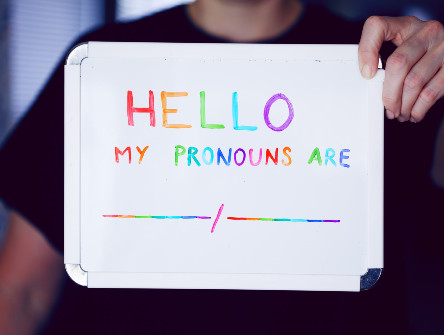Helping women cope with domestic and sexual violence
COVID-19's impacts on violence against women are multi-faceted and complex.

Even before the pandemic, violence against women was one of the most widespread violations of human rights. Since lockdown restrictions, domestic violence has multiplied, spreading across the world in a shadow pandemic. - Phumzile-Mlambo-Ngcuka, Executive Director of UN Women
Having just reached the conclusion of 16 days of activism against gender-based violence, we need to remind ourselves that lawyers, like other professionals, are trusted advisors who can help women cope with domestic or sexual violence.
The United Nations chose November 25 as the International Day for the Elimination of Violence Against Women, which marks the beginning of the 16 days, to pay tribute to the Mirabal sisters who were assassinated in 1960 in the Dominican Republic. Significantly, in Canada, the 16 days encompass and memorialize December 6, the day in 1989 when 14 young women were murdered at Polytechnique Montréal. On December 6, Canada has its own National Day of Remembrance and Action on Violence Against Women.
The UN describes violence against women as "an obstacle to achieving equality, development and peace, as well as to the fulfillment of women and girls." In 2020, the COVID-19 pandemic has intensified gender-based violence, creating what the UN describes as a "shadow pandemic which creates barriers to peoples' ability to access services and safety."
COVID-19's impacts on violence against women are multi-faceted and complex. They include financial strain from lost employment. Also, isolation and physical distancing combined with increased domestic burdens result in tension, stress and anxiety, which can increase conflict and substance abuse. In other words, critical public health measures can result in increased risk factors for abuse.
Calgary Communities Against Sexual Assault (CCASA) reports that they have seen a 25 to 40% increase in the number of people contacting them for support during the pandemic. They have also seen increased levels of crisis for clients who have reached out: more challenges with basic needs and income security, and increasing lack of access to primary and mental health care. Peoples' needs are much more complex.
So how can lawyers help? For starters, they can provide an opening for women to report what is happening, offer a supportive response, and help them identify and access resources.
Alicia Teasdale, the Education and Training Program Director for CCASA, suggests that lawyers can support their clients by creating "a window of opportunity," and "finding ways to speak privately and check-in." They should believe their clients and be supportive in their response, validating their experiences and decisions. Clients may be monitored and unable to answer questions about their well-being honestly over a phone or teleconference call. Text and chat functions are effective means for more private communication. Some platforms have a "hide" or "cover your tracks" feature to delete the chat history.
Domestic violence is only one form of sexual violence. Sexual harassment in the workplace is another. Law firms must comply with Alberta's Occupational Health and Safety legislation. It requires sexual harassment to be reported, investigated and addressed. It also requires bystanders who are aware of harassment to report it. As the UN notes, one way to address violence against women is for people to hold each other accountable. In the legal profession, that means supporting colleagues who are being harassed, even when the person harassing them is a senior member of the bar.
In addition to listening to clients and supporting colleagues, lawyers can access resources. CCASA offers training to professionals, including lawyers, on how to respond when a client reports domestic violence. The Family Violence Info Line (403.310.1818) is available toll-free to Albertans 24/7 in over 170 languages, and the Family Violence Info Line chat is available 8 a.m. to 8 p.m. daily in English. Other supports are available on the Government of Alberta's find supports page. A Family Violence during COVID-19 info sheet is also available (multiple languages). Lawyers, law students and law firm staff can also contact the Law Society of Alberta's Equity Ombudsperson to discuss the issue they are facing confidentially.


